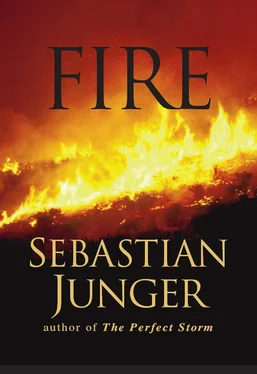Armed and directed by Pakistan and facing a completely fractured alliance, the Taliban rapidly fought their way across western Afghanistan. The population was sick of war and looked to the Taliban as saviors, which, in a sense, they were, but their brand of salvation came at a tremendous price. They quickly imposed a form of Islam that was so archaic and cruel that it shocked even the ultratraditional Muslims of the countryside. With the Taliban closing in on Kabul, Massoud found himself forced into alliances with men—such as Hekmatyar and former Communist Abdul Rashid Dostum—who until recently had been his mortal enemies. The coalition was a shaky one and didn’t stand a chance against the highly motivated Taliban forces. After heavy fighting, Kabul finally fell to the Taliban in early September 1996, and Massoud pulled his forces back to the Panjshir Valley. With him were Burhanuddin Rabbani, who was the acting president of the coalition government, and a shifty assortment of mujahidin commanders who became known as the Northern Alliance. Technically, Rabbani and his ministers were the recognized government of Afghanistan—they still held a seat at the UN—but in reality, all they controlled was the northern third of one of the poorest countries in the world.
Worse still, there was a growing movement from a variety of Western countries—particularly the United States—to overlook the Taliban’s flaws and recognize them as the legitimate government of the country. There was thought to be as much as two hundred billion barrels of untapped oil reserves in Central Asia and similar amounts of natural gas. That made it one of the largest fossil fuel reserves in the world, and the easiest way to get it out was to build a pipeline across Afghanistan to Pakistan. However appalling Taliban rule might be, their cooperation was needed to build the pipeline. Within days of the Taliban takeover of Kabul, a U.S. State Department spokesman said that he could see “nothing objectionable” about the Taliban’s version of Islamic law.
While Massoud and the Taliban fought each other to a standstill at the mouth of the Panjshir Valley, the American oil company Unocal hosted a Taliban delegation to explore the possibility of an oil deal.
The day before the offensive, Massoud decided to go to the front line for a close look at the Taliban. He couldn’t tell if the attack, as planned, would succeed in taking their ridgetop positions; he was worried that his men would die in a frontal assault when they could just as easily slip around back. He had been watching the Taliban supply trucks through the binoculars and had determined that there was only one road leading to their forward positions. If his men could take that, the Taliban would have to withdraw.
Massoud goes everywhere quickly, and this time was no exception. He jumped up from a morning meeting with his commanders, stormed out to his white Land Cruiser, and drove off. His commanders and bodyguards scrambled into their own trucks to follow him.
The convoy drove through town, raising great plumes of dust, and then turned down toward the river and plowed through the braiding channels, muddy water up to their door handles. One truck stalled in midstream, but they got it going again and tore through no-man’s-land while their tanks on Ay Khanom Hill shelled the Taliban to provide cover. They drove up to the forward positions and then got out of the trucks and continued on foot, creeping to within five hundred yards of the Taliban front line. This was the dead zone: Anything that moves gets shot. Dead zones are invariably quiet; there’s no fighting, no human noise, just an absolute stillness that can be more frightening than the heaviest gunfire. Into this stillness, as Massoud studied the Taliban positions, a single gunshot rang out.
The bullet barely missed one of his commanders—he felt its wind as it passed—and came to a stop in the dirt between Massoud’s feet. Massoud called in more artillery fire, and then he and his men quickly retraced their route to the trucks. The trip had served its purpose, though. Massoud had identified two dirt roads that split in front of the Taliban positions and circled behind them. And he had let himself be seen on the front line, reinforcing the Taliban assumption that this was the focus of his attack.
Late that afternoon Massoud and his commanders went back up to the command post. The artillery exchanges had started up again, and a new Ramadan moon hung delicately in the sunset over the Taliban positions. That night, in the bunker, Massoud gave his commanders their final instructions. The offensive was to be carried out by eight groups of sixty men each, in successive waves. They must not be married or have children; they must not be their families’ only sons. They were to take the two roads Massoud had spotted and encircle the Taliban positions on the hill. He told them to cut the supply road and hold their positions while offering the Taliban a way to escape. The idea was not to force the Taliban to fight to the last man. The idea was just to overtake their positions with as few casualties as possible.
The commanders filed out, and Reza and Dr. Abdullah were left alone with Massoud. He was exhausted, and he lay down on his side with his coat over him and his hands folded under his cheek. He fell asleep, woke up, asked Reza a question, then fell asleep, over and over again for the next hour. Occasionally a commander would walk in, and Massoud would ask if he’d repositioned those mortars or distributed the fifty thousand rounds of ammunition to the front. At one point, he asked Reza which country he liked best of all the ones he’d worked in.
“Afghanistan, of course,” Reza said.
“Have you been to Africa?”
“Yes.”
“Have you been to Rwanda?”
“Yes.”
“What happened there? Why those massacres?”
Reza tried to explain. After a few minutes, Massoud sat up. “A few years ago in Kabul, I thought the war was finished, and I started building a home in Panjshir,” he said. “A room for my children, a room for me and my wife, and a big library for all my books. I’ve kept all my books. I’ve put them in boxes, hoping one day I’ll be able to put them on the shelves and I’ll be able to read them. But the house is still unfinished, and the books are still in their boxes. I don’t know when I’ll be able to read my books.”
Finally Massoud bade Reza and Dr. Abdullah good night and then lay back down and went to sleep for good. Though he holds the post of vice-president in Rabbani’s deposed government, Massoud is a man with few aspirations as a political leader, no apparent desire for power. Over and over he has rejected appeals from his friends and allies to take a more active role in the politics of his country. The Koran says that war is such a catastrophe it must be brought to an end as quickly as possible and by any means necessary. That, perhaps, is why Massoud has devoted himself exclusively to waging war.
Iwoke up at dawn. The sky was pale blue and promised a warm, clear day, which meant that the offensive was on. Reza and I ate some bread and drank tea and then went outside with the fighters. There seemed to be more of them milling around, and they were talking less than usual. They stood in tense little groups in the morning sun, waiting for Commander Massoud to emerge from his quarters.
The artillery fire started up in late morning, a dull smattering of explosions on the front line and the occasional heavy boom of a nearby tank. The plan was for Massoud’s forces to attack at dusk along the ridge, drawing attention to that part of the front, and then around midnight other attacks would be launched farther south. That was where the front passed close to Taloqan. As the afternoon went by, the artillery fire became more and more regular, and then suddenly at five-fifteen a spate of radio calls came into the bunker. Massoud stood up and went outside.
Читать дальше












